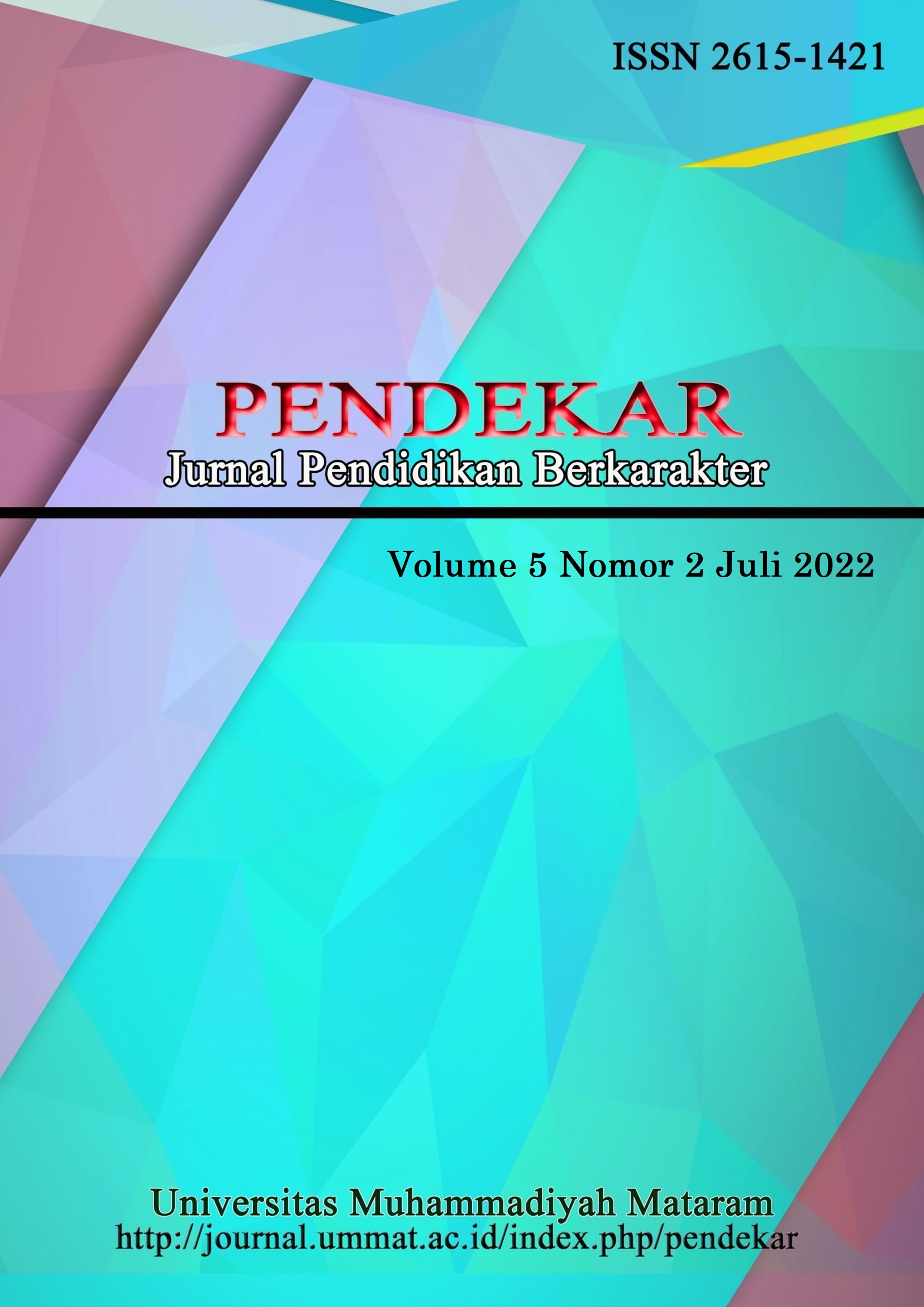PROBLEMATIKA ANAK PUTUS SEKOLAH DI DUSUN GUNUNG PARANG DESA GUNUNG GENI KECAMATAN BANYUANYAR KABUPATEN PROBOLINGGO
DOI:
https://doi.org/10.31764/pendekar.v5i2.9957Keywords:
Problematika, Anak Putus Sekolah.Abstract
Abstrak: Problematika anak putus sekolah merupakan permasalahan yang sering kita temui. Masalah ini berlangsung lama dan sulit untuk di pecahkan. dari permasalahan tersebut anak putus sekolah di Dusun Gunung parang Desa Gunung geni Kecamatan Banyuanyar Kabupaten Probolinggo berasal dari dua faktor yaitu faktor internal yang berasal dari dalam diri anak seperti; faktor minat baik berupa kemalasan hobi bermain, dan bakat di dalam kelas yang sulit menyerap materi sedangkan faktor eksternal yang berasal dari luar diri anak seperti faktor lingkungan, faktor ekonomi, pernikahan dini dan kurangnya perhatian orang tua. Peneliian ini menggunakan penelitian kualitatif dengan pendekatan studi kasus. Penelitian studi kasus di pilih dalam studi ini, untuk menggali secara mendalam mengenai kasus anak putus sekolah seperti faktor yang melatarbelakangi anak putus sekolah, dan dampak yang terjadi kepada anak putus sekolah. Hasil penelitian menunjukkan bahwa ada dua faktor yang melatarbelakangi anak putus sekolah, yakni faktor eksternal dan internal. Faktor eksternal terbagi atas faktor yang berasal dari luar diri anak yakni berupa faktor ekonomi orang tua, kemampuan dalam memberikan motivasi. faktor yang berasal dari sekolah seperti minimnya akses dan kurangnya fasilitas sekolah. Sedangkan faktor internalnya merupakan hal yang berasal dari anak itu sendiri yaitu faktor minat, kemalasan, hobi bermain, Pernikahan dini dan keinginan untuk tidak melanjutkan pendidikan. Sedangkan dampak yang terjadi kepada anak putus sekolah yaitu bisa menyebabkan kenakalan remaja dan pengangguran.
Abstract:Â Dropping out of school is a problem that we often encounter. This problem lasts a long time and is difficult to solve. From these problems, children dropping out of school in Gunung Parang Hamlet, Gunung Geni Village, Banyuanyar District, Probolinggo Regency, started from two factors, namely internal factors that came from within the child, such as; interest factors in the form of laziness, hobbies, and talents in class that are difficult to absorb material, while external factors that come from outside the child such as environmental factors, economic factors, early marriage and lack of parental attention. This research uses qualitative research with a case study approach. Case study research was selected in this study, to dig deeply into the cases of out-of-school children such as the factors behind out-of-school children, and the impact that occurs on out-of-school children. The results showed that there are two factors behind out-of-school children, namely external and internal factors. External factors are divided into factors that come from outside the child, namely in the form of parents' economic factors, the ability to provide motivation. factors derived from schools such as lack of access and lack of school facilities. While the internal factors are things that come from the child himself, namely factors of interest, laziness, hobby of playing, early marriage and the desire not to continue education. Meanwhile, the impact that occurs on out-of-school children can cause juvenile delinquency and unemployment.
References
Case study research was selected in this study, to dig deeply into the cases of out-of-school children such as the factors behind out-of-school children, and the impact that occurs on out-of-school children. The results showed that there are two factors behind out-of-school children, namely external and internal factors. External factors are divided into factors that come from outside the child, namely in the form of parents' economic factors, the ability to provide motivation. factors derived from schools such as lack of access and lack of school facilities. While the internal factors are things that come from the child himself, namely factors of interest, laziness, hobby of playing, early marriage and the desire not to continue education. Meanwhile, the impact that occurs on out-of-school children can cause juvenile delinquency and unemployment.
Downloads
Published
Issue
Section
License
Authors who publish articles in International Journal on Student Research in Education, Science, and Technology agree to the following terms:
- Authors retain copyright of the article and grant the journal right of first publication with the work simultaneously licensed under a CC-BY-SA or The Creative Commons Attribution–ShareAlike License.
- Authors are able to enter into separate, additional contractual arrangements for the non-exclusive distribution of the journal's published version of the work (e.g., post it to an institutional repository or publish it in a book), with an acknowledgment of its initial publication in this journal.
- Authors are permitted and encouraged to post their work online (e.g., in institutional repositories or on their website) prior to and during the submission process, as it can lead to productive exchanges, as well as earlier and greater citation of published work (See The Effect of Open Access).

